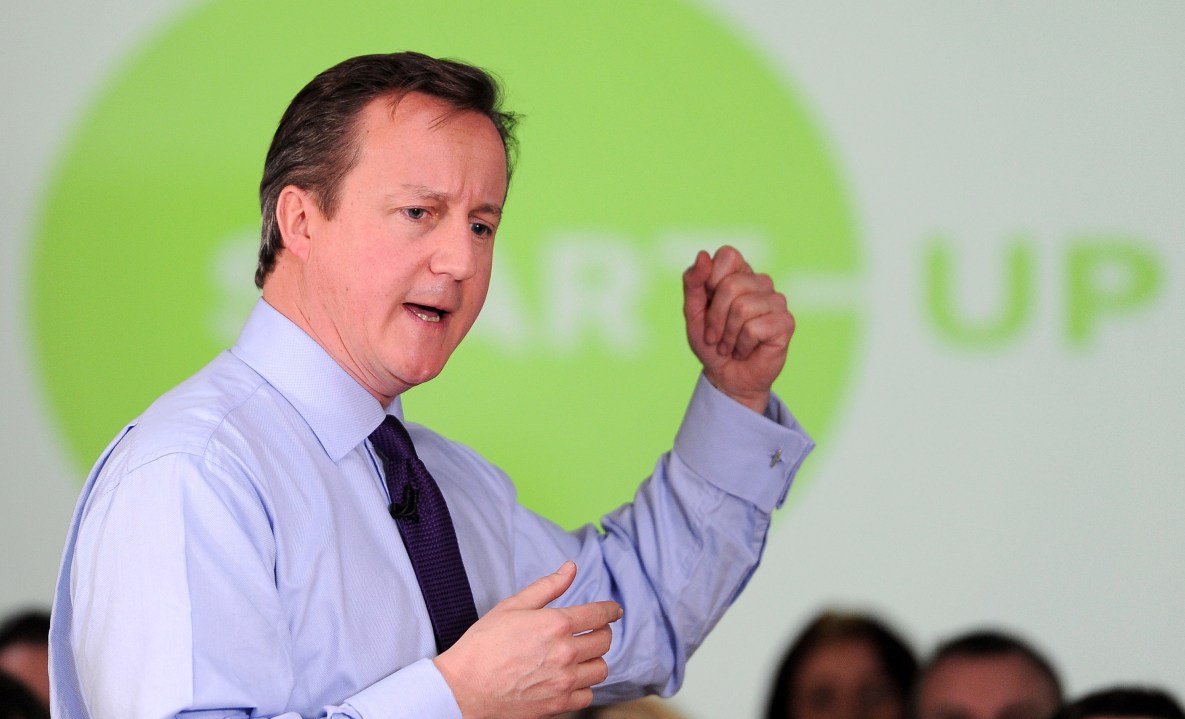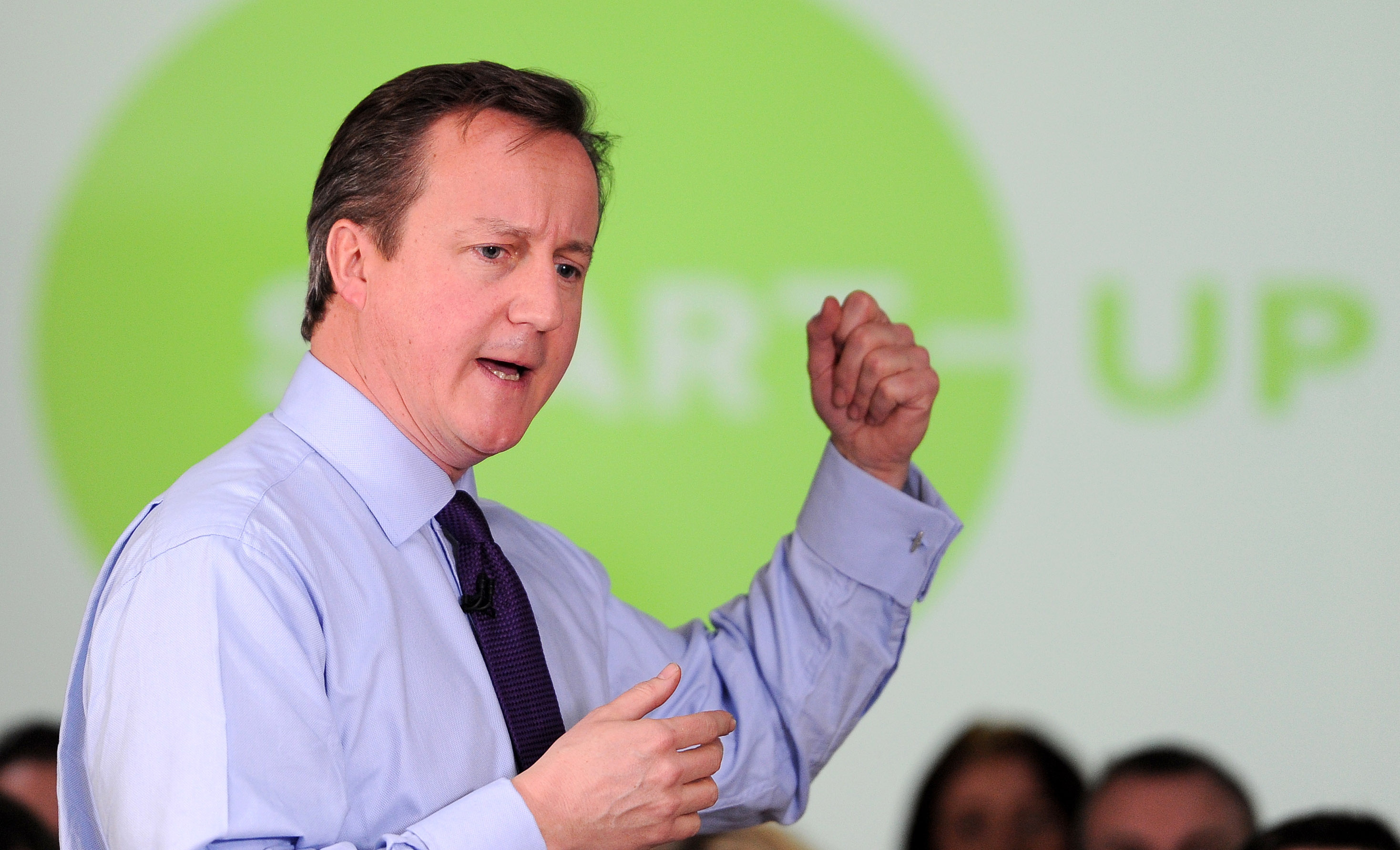This is unfortunate, not least because the Prime Minister is a greater realist than many of his erstwhile supporters. They, too often, seem to be another bunch of Bourbons. They helped destroy the last Conservative Prime Minister and they seem determined to help vanquish this one too. The country is not nearly so obsessed with Europe as the Conservative party thinks it is and, whatever the people’s frustrations with Brussels and the European Union, I still think it unlikely the electorate is liable to be impressed with or by a party that spends quite so much time and energy on the European question.
Not that the Prime Minister is helping. His forthcoming euro-speech has been so widely and lengthily trailed that it now has almost no chance of succeeding. The press, damn their eyes, is already bored by Mr Cameron’s speech. (The public is probably only dimly aware there’s going to be a speech). A fed-up press corps is not likely to judge the Prime Minister kindly or generously. That’s the nature of the beast and there’s no point wishing it were different.
Nor, however, can Mr Cameron placate his own party. A ConservativeHome survey of 1,500 Tory members makes this clear. Some 38 per cent say Britain leaving the EU is their preferred outcome. Another 40 per cent want Britain to ‘win’ a ‘common market relationship with the European Union’.
The 38 per cent find themselves opposed to their own leader’s policy but at least their position has the comparative virtue of clarity. The 40 per cent are swimming in a sea of delusion. It might be a fine thing if a Common Market relationship with the EU was available; unfortunately it is not. At least it’s not available in the terms many – perhaps even most – of these people understand it. A one-page free trade agreement with the EU would be a braw thing. But so are unicorns. And they don’t exist either. Markets come with laws and regulations attached and, again, while we might wish it otherwise we cannot wish awkward facts away. No, not even with heroic dollops of British grit and willpower.
It doesn’t end there. 50 per cent of Tory members sampled want the Prime Minister to announce a specific date for a referendum (preferably to be held before June 2014) and resign if no referendum takes place on that date. Ordinarily it might be thought useful to know what you wish to have a vote on before announcing the date of that vote but the ordinary rules do not seem to apply whenever conversation turns to Brussels.
(A question I wish Tim Montgomerie and his chums had asked: Which 2014 referendum is more important: a Europe vote or the Scottish independence referendum? I suspect this might have produced an interesting answer.)
I digress. 85 per cent of the Conservative members polled say the Prime Minister is only making this ballyhooed euro-speech because he needs to respond to the ‘growing euroscepticism within the Conservative party and within the electorate’. On this, I am sure the Tory members are correct. They have the Prime Minister on the run and they know it. And once you start running, once a Prime Minister is being pursued by his own hounds then it becomes exceedingly difficult to stop or find a useful and secure hiding place.
Which is why I say that Mr Cameron is most unlikely to find any kind of euro-strategy that can satisfy his erstwhile supporters, far less one that assuages them while also impressing the rather larger number of Britons who are not presently members of the Conservative party.
Again: he begins from a position in which his evident preference – Britain remaining a member of the EU – is supported by barely more than six in ten of the party’s most committed supporters. That’s a hopeless position from which to start, not least since there is, I suspect, almost nothing Mr Cameron can do to placate these Tories. At least not on Europe.
History does not, of course, always actually repeat itself. Nevertheless, Europe was one of the issues that did for John Major (though the economy and time were vital players too) and it looks increasingly likely that it may eventually do for Mr Cameron. Again, nearly 40 per cent of his party thinks he’s a hopeless squish and another 40 per cent cling to an impossible, reality-defying dream.
How, faced with this, can Mr Cameron win? He may have been bullied into talking about Europe but I suspect little good can come from talking about a subject upon which he has few options that combine the useful qualities of being both attractive and realistic.








Comments